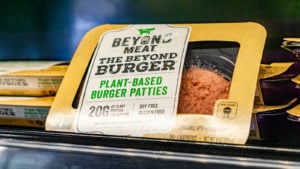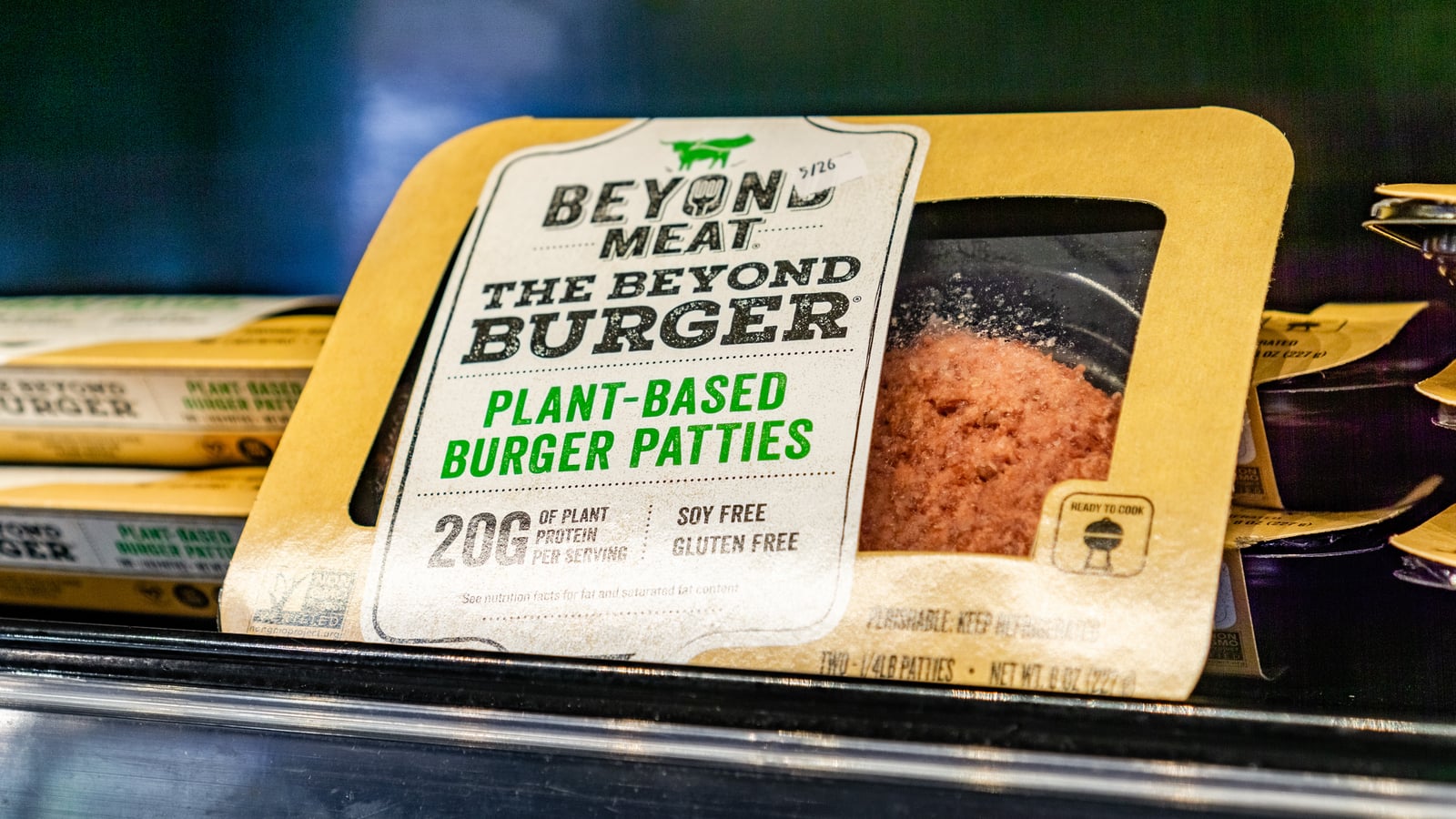For quite some time, I’ve expressed skepticism toward plant-based meat producer Beyond Meat (NASDAQ:BYND). Primarily, I can summarize the enthusiasm in one word: fad. Most recently, we saw the dramatic rise and subsequent fall of National Beverage (NASDAQ:FIZZ), which attempted to capitalize on the ephemeral sparkling water craze. But the difference is that unlike BYND stock, FIZZ never encountered an economically devastating pandemic during its glory days. So, will the novel coronavirus change the narrative for fake meat?

On the surface, it seems as if Beyond Meat received a much-needed lifeline. Recently, traditional meat-processing companies raised the alarm, suggesting that the pandemic’s disruption to critical supply chains will translate to animal-protein-based food shortages. As we saw with toilet paper when the initial panic struck, just hearing about shortages for any core product will drive folks into a frenzy.
If that were to happen with meat, only the early-bird shoppers will be satisfied. Everyone else will be left with no alternatives, except for one glaring option: plant-based meat. Based on this implication, BYND stock enjoyed a tremendously positive month of April.
Furthermore, Beyond Meat isn’t what you would call an alien concept. The company has made an aggressive push toward inking deals with high-profile fast-food chains, such as McDonald’s (NYSE:MCD), Dunkin Brands (NASDAQ:DNKN) and Starbucks (NASDAQ:SBUX). It has also made substantial overtures to grocery chains.
Some people swear by the product. Certainly, momentum at fast-food chains suggest that consumers are at least willing to give fake meat a shot. For those that the company hasn’t reached, the pandemic — along with the meat shortage — represent a perfect opportunity.
Nevertheless, I still wouldn’t put BYND stock in your portfolio.
BYND Stock Is in the Same Boat as Its Rivals
First, let me address a somewhat overlooked factor: alternative meat is not universally loved. If anything, it’s an acquired taste. Plus, the chemicals involved to give plant-based materials its meaty texture may not suit everyone’s digestive system.
Second, President Trump recently declared meat-processing plants “critical infrastructure.” While this announcement may not resolve all issues surrounding the meat-based food supply chains, it demonstrates that the federal government will do everything it can to prevent catastrophic shortages.
But one of the biggest reasons why I’m skeptical about BYND stock is that its supporters are pretending that the headwinds that impact traditional meat will exempt the alternative meat industry. In reality, they’re both sitting in the same boat.
While the supply chain disruption has many components, a key driver to the meat shortages is demand. Shortly after Covid-19 raged across the nation, most states elected to impose stay-at-home orders. That one move immediately crippled the restaurant industry. Although many states allowed restaurants to switch to a food-delivery model, that failed to significantly mitigate the pain.
Additionally, with nothing to do, most consumers have elected to do their own shopping. Obviously, it’s cheaper — especially during a time of economic turmoil — and it helps kill the time.
Unfortunately, this hard transition cut meat demand from restaurants, helping to cause the meat shortage we’re suffering now. But the hit to restaurants is also a hit to BYND stock. In their most recent earnings report, management disclosed that restaurants and food service outlets represented 59% of Beyond Meat’s quarterly revenue.
In other words, whatever lookie-loo demand they get from grocery shoppers will not make up for the losses they’re seeing from the headwinds supposedly creating their opportunity.
A Classic Bull Trap
This is another reason why I call BYND stock a fad investment: Beyond bulls are only thinking one-dimensionally. If anything, the coronavirus is a bigger disruption to alternative meat companies as opposed to their traditional counterparts.
That’s because real meat producers don’t need to justify their existence. Humans have been eating animal protein since their inception. More than likely, we’ll continue to do so for another millennia. What does need justification is the concept of eating chemicals that resemble the look, taste and feel of the real thing.
Yes, you can make the argument that Beyond has been successful in communicating that message. However, that communication was not cheap. In order to reap the rewards from that marketing risk, BYND desperately needed a normal market environment. Unfortunately, they don’t have it.
Instead, what they’re left with right now are counterfeit products at premium prices. Ironically, because the plant-based supply chain isn’t fully fleshed out, Beyond Meat products are priced much higher than their real counterparts.
Put another way, Beyond lacks the scale to compete effectively. Once supply chains normalize for all food products, BYND stock has a chance. But by then, the traditional meat producers will presumably be back to full capacity.
Matthew McCall left Wall Street to actually help investors — by getting them into the world’s biggest, most revolutionary trends BEFORE anyone else. The power of being “first” gave Matt’s readers the chance to bank +2,438% in Stamps.com (STMP), +1,523% in Ulta Beauty (ULTA) and +1,044% in Tesla (TSLA), just to name a few. Click here to see what Matt has up his sleeve now. Matt does not directly own the aforementioned securities.
